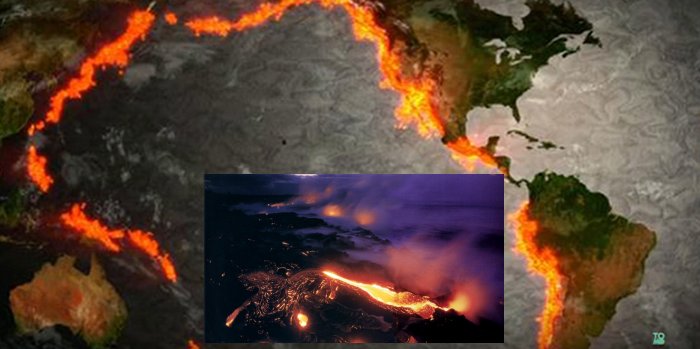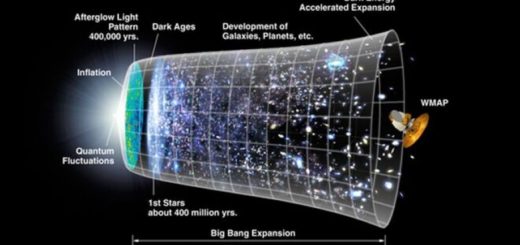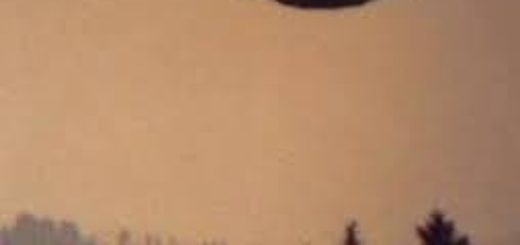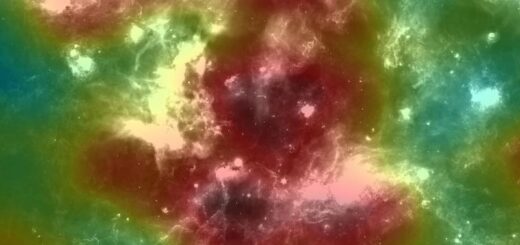Ring Of Fire: Home To Powerful And Deadly Forces Lurking Deep Beneath Earth’s SurfaceMany Volcanoes In The Ring Of Fire
The Pacific Ocean is surrounded by a very dangerous zone composed of more than 450 active and dormant volcanoes, which are spread over 40,000 kilometers (25,000 miles.)
The Pacific Ring of Fire is different today than it was thousands of years ago because of the changes caused by tectonic plates.

The Ring of Fire is not exactly a circular ring but it is more like a gigantic, horseshoe-shaped zone of danger that stretches along the coasts of New Zealand, Indonesia, the Philippines, Japan, Alaska, California, Mexico, Guatemala, Colombia and Peru and the nearby ocean trenches.
Still active volcanoes are also located in the western part of Antarctica.
Many of these volcanoes constantly threaten residents of nearby towns and villages. Moreover, the Ring of Fire area is also a zone of powerful earthquakes.
According to research 81 percent of the world’s largest earthquakes and 90 percent of the world’s earthquakes occur along the Ring of Fire.
Gigantic huge slabs of the Earth’s crust (tectonic plates) move non-stop; they slide next to each other, they collide, move apart over a layer of partly molten and solid rock. The released energy results in volcano eruptions and earthquakes.
Unfortunately, most of this dangerous tectonic activity concentrates in the Ring of Fire, which is home to some of the most powerful and deadly forces lurking deep beneath the Earth’s surface.
North Island of New Zealand is located within the Ring of Fire. It is one of the world’s prime volcanic areas, where the most violent eruption – the Taupo eruption – occurred in 186 AD. No historical data exist and what is known about this cataclysmic event has been pieced together from geologic studies of the immense ash flow deposits of the area.
The Taupo eruption was the most violent eruption in the world in the last 5,000 years. There was no population at this time but if people lived in the island at the time, they didn’t survive to tell the story.
Popocatépetl (the Aztec word for ‘smoking mountain’), which is one of Mexico’s most active volcanoes and one of the most dangerous volcanoes in the Ring of Fire, is located on the Trans-Mexican Volcanic Belt (locally also known as the Sierra Nevada), which covers central-southern Mexico.
In this belt, Popocatépetl is only one of several major volcanoes of Mexico.
Popocatépetl, towering to 5426 meters, had 15 recorded eruptions since 1519 and poses a risk to the more than 20 million people that live close enough to be threatened by a destructive eruption.
One of the most dangerous volcanoes in the Ring of Fire is Krakatau. It explodes much less frequently than other volcanoes, but each of Krakatau’s explosions is extremely dangerous and devastating.
This volcano was responsible for one the most violent volcanic events in recorded history. In 1883, 165 villages and towns were destroyed near Krakatoa, and 132 were seriously damaged; at least 36,417 people died, and many more thousands were injured, mostly from the tsunamis that followed the explosion.
The eruption destroyed two-thirds of the whole island of Krakatoa!
Another danger related to the Ring of Fire, are underwater volcanoes.
Did you know that most of the active volcanoes on Earth are located underwater, along the Ring of Fire in the Pacific Ocean?While volcanoes above the surface of the water are constantly being watched and scientists are able to anticipate the power of upcoming outbursts, many of volcanoes on the ocean floor cannot be observed in the same way.
Still, most of the world’s volcanoes probably erupt under the oceans. However, many of them never break the ocean surface and therefore, only a small percentage of them are recorded.
We can hope that all these volcanoes will never start waking up, at the same time.
Written by – A. Sutherland AncientPages.com Staff Writer



 Creators of mankind
Creators of mankind Description of “Tall white aliens”
Description of “Tall white aliens” Where they came from?
Where they came from? About hostile civilizations
About hostile civilizations The war for the Earth
The war for the Earth “Tall white aliens” about eternal life
“Tall white aliens” about eternal life Video: “Nordic aliens”
Video: “Nordic aliens” Aliens
Aliens Alien encounters
Alien encounters The aliens base
The aliens base UFO
UFO Technology UFO
Technology UFO Underground civilization
Underground civilization Ancient alien artifacts
Ancient alien artifacts Military and UFO
Military and UFO Mysteries and hypotheses
Mysteries and hypotheses Scientific facts
Scientific facts


















